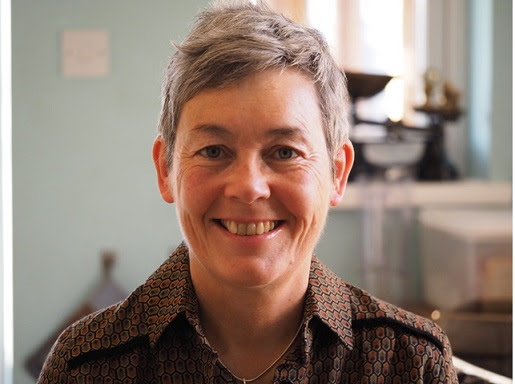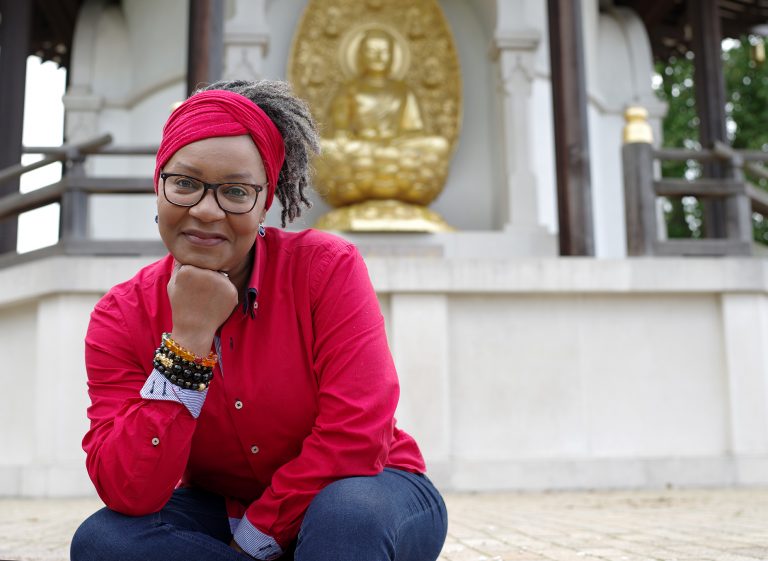Public engagement in research is an important aspect of the contemporary academic landscape, recognising the invaluable insights that communities and groups contribute. In this vein, as part of a larger project aimed at understanding how researchers at the University of Westminster involve the public in their research, the Health Innovation and Wellbeing Community organised an event at the University of Westminster on July 6th. The event specifically aimed to explore the transformative potential of public involvement in research. With a focus on addressing key questions and showcasing diverse approaches to public involvement, this exclusive internal gathering served as a platform for academics to delve into the significance of involving the public in their research endeavours.
Dr. Dana Rosenfeld, working in a consultative capacity, was the driving force behind the event. Dana took the stage and set the tone for the day. She emphasized that public involvement goes beyond viewing individuals as mere research subjects; instead, it empowers and recognises participants as experts in their own right. By including the public from the very outset, researchers can enhance the quality and relevance of their studies. Dana’s work with older people affected by HIV highlighted the vital role that community involvement in research has: amongst the many impacts on research, it reveals how participants’ insights, suggestions, and collaboration are essential to conducting meaningful research. Dr. Rosenfeld introduced the importance of using lexicon guided by the public as well as the concept articulated by the HIV community of “nothing about me without me”.

Next, Professor Mary Corcoran from Keele University shared her experiences of conducting research with justice-experienced individuals in England and the North of Ireland. Mary highlighted the complexities of engaging with marginalised communities, particularly those who have faced criminal justice punishment. Prof. Corcoran emphasized the importance of trust-building, finding separate pathways for access, and challenging the labels and stigmatisation these individuals, and marginalised communities, often encounter. The importance of this work was emphasised: by involving justice-experienced individuals, researchers gain access to their perspectives and experiences and can challenge prevailing narratives surrounding criminal justice.

Rebecca Mbewe is both a researcher at Queen Mary, University of London and an advocate. She has been involved with Making Waves, a collective working for gender equality, HIV and sexual health. Emphasizing the significance of involving diverse communities in research, she reminded us that the community extends far beyond the narrow definition that is sometimes considered by researchers. Rebecca stressed the importance of researchers identifying the right individuals and involving them from the very start, as well as understanding the researcher position and the public in relation to the research topic. She also emphasized the importance of training, inclusion, transparency, and the use of accessible language for ensuring meaningful involvement. By engaging the community throughout the research process, researchers can broaden the scope of their data, foster trust, and facilitate better dialogues.

The event then welcomed Savitri Hensman, Coordinator for the Collaboration for Leadership in Applied Health Research and Care (CLAHRC), King’s College London. Savi’s presentation highlighted the significance of involving diverse communities in research. Drawing from her extensive experience in health and social care planning, delivery, and research, Savi emphasized the importance of inclusivity and the role of lived experience in shaping research studies and their outcomes. She shared insights into the challenges and practical considerations of planning and implementing inclusive involvement strategies. Savi’s perspective further underscored the need to address broader issues of power, status, and systemic inequalities to ensure equitable and meaningful public engagement.
Agnes Agyepong, founder and CEO of Global Black Maternal Health, has been recognised for her immense contribution to the field of Black Maternal Health. Agnes brought a powerful voice to the event. Sharing her own story, Agnes highlighted the essential role of diversity and community engagement in research. Agnes raised critical issues, such as the disproportionate impact of childbirth on Black women and the urgent need for inclusive research practices. She stressed the significance of asking the right research questions and involving the right communities to address previously overlooked issues. Agnes’s insights challenge our existing systems. She called for a fresh approach that puts the patient and public at the heart of the research, and highlighted how this leads to meaningful and impactful research.

The event ended with a vibrant panel discussion, where speakers and attendees from the academic community shared their experiences, challenges, and best practices in public involvement in research. It was an open and honest exchange that showcased both the successes and the areas that require improvement. Recognising the importance of existing ethics frameworks, the panel discussed transparency, authorship recognition, and open communication, all of which were identified as crucial elements for success. It was emphasised that when involving the public in research, we need to go beyond rewarding participants with vouchers. Instead, we need to focus on what the individual and community want, need, and will benefit from. The importance of creating lasting and long-term relationships was emphasised by all the panel members. The concept of researchers “parachuting into” communities and extracting information was identified as extremely poor practice.
The panel emphasized the importance of coproduction, collaborative organization, and training programs to foster inclusive involvement. The speakers acknowledged the need to address power imbalances, expand outreach beyond existing communities, and provide emotional support for researchers engaged in public involvement.
The event, “Involving the Public in Research,” was truly transformative. It reinforced the idea that public involvement is critical for enhancing the quality, relevance, and trustworthiness of research. The insights shared by our esteemed speakers and the engaging panel discussion sparked inspiration and prompted reflection on existing research practices within the academic community. By embracing diverse approaches to public involvement, researchers can reshape their methodologies and embark on collaborative journeys that lead to remarkable discoveries.
We kindly remind all members of our university community to
participate in our ongoing survey on public involvement in research. Your input
matters, and we specifically encourage individuals from diverse disciplines
beyond the Health Innovation and Wellbeing (HIW) Community to share their
insights and contribute to our collective understanding. Don’t miss this opportunity to shape the future of our research culture—participate in the
survey today!
- Unlocking the Power of Public Engagement in Research: A Transformative Event at the University of Westminster - July 14, 2023
- Empowering Collaboration: Recap of the Impactful Research and Knowledge Exchange Event with Citizens UK - May 26, 2023
- PPI at Westminster: The Breast Cancer Cookbook - February 14, 2023
